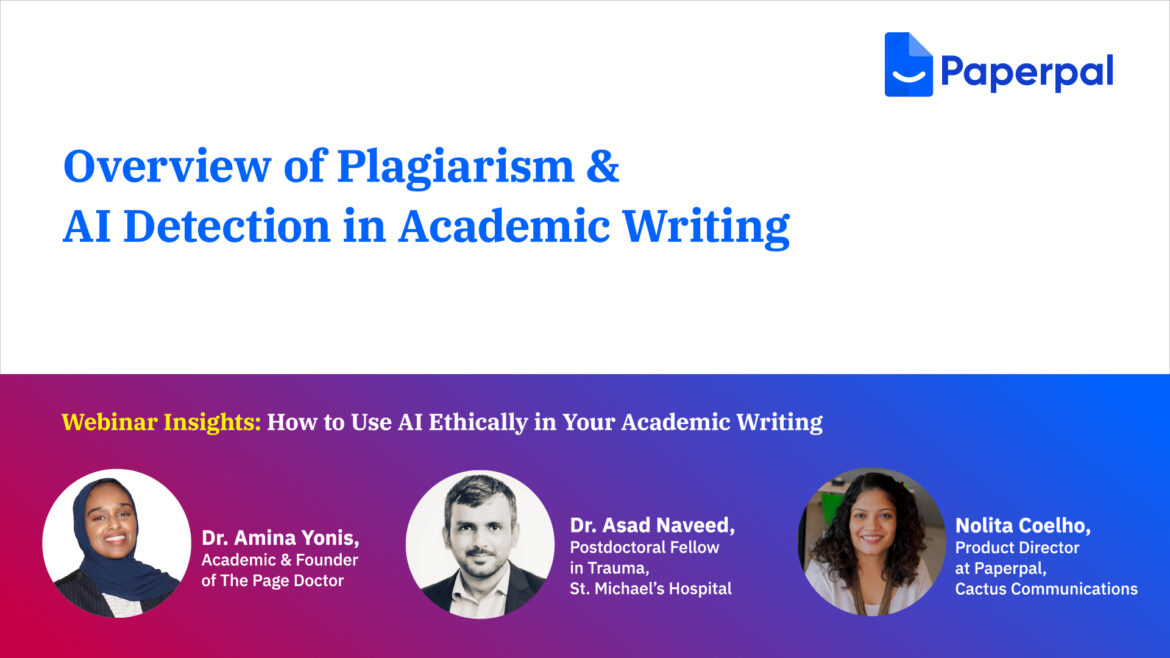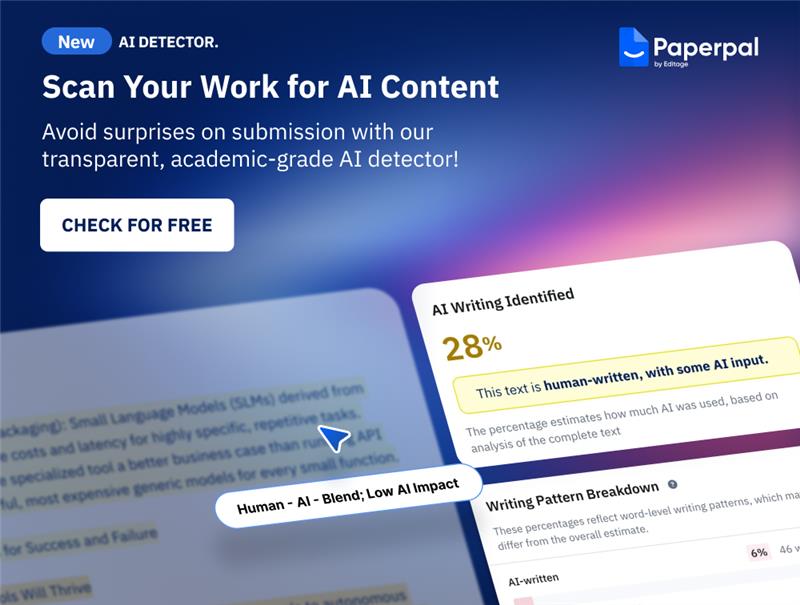Originality has always been a cornerstone of academic success. But the landscape is changing. With the rise of AI writing assistants, the line between helpful tool and sneaky shortcut is blurring. This raises a crucial question: can traditional plagiarism checkers, a student’s reliable partner to detect plagiarism, keep pace with AI content generation? In this blog, we discuss the extent of plagiarism detection on AI-generated text, and how not to overlook AI’s involvement in academic writing.
Table of Contents
- Why can’t plagiarism detectors detect AI content?
- What are university guidelines on AI-generated content?
- What ethics should researchers and PhD students practice when using AI writing tools?
Why can’t plagiarism detectors detect AI content?
AI-generated content often consists of entirely new combinations of words, making it difficult for traditional plagiarism detector to identify unintentional or self-plagiarism. These tools employ conventional text-matching and compare text against a database of existing content to detect plagiarised content. As AI-generated content is original and is not copied or paraphrased from existing content, it doesn’t match any entries in the database, making it challenging for plagiarism detection tools to flag it as plagiarized.
Watch Experts Speak on Plagiarism and AI Detection in Academic Writing
What are university guidelines on AI-generated content?
Universities, including Yale, have recognized the challenges associated with detecting AI-generated writing and have adapted their guidelines accordingly.1 Yale’s guidance on the usage of AI acknowledges the difficulty of controlling the ease of AI writing through surveillance or detection technology. Notably, Yale has opted not to enable Turnitin’s AI detection feature in their Canvas system due to reliability concerns. This stance reflects a growing awareness among academic institutions of the limitations of existing detection tools in identifying AI-generated content accurately.

What ethics should researchers and PhD students practice when using AI writing tools?
Researchers and PhD students can leverage the benefits of AI writing tools while upholding academic integrity and producing high-quality, original research. Below are a few ethical practices to use AI responsibly in academic writing:
Human Supervision
It’s essential to supervise AI-generated content closely, ensuring that it aligns with academic standards and does not deviate from original intentions. AI should not be allowed to run autonomously without human oversight. Maintaining human control ensures that AI-generated content upholds ethical standards and avoids unintended consequences.
Originality Emphasis
Distinguish between using AI to generate new text and enhancing existing work. Originality remains paramount in academic submissions, emphasizing the importance of authentically crafted content.
Enhancing Text Responsibly
While AI can assist in enhancing text by simplifying language and structure, it’s crucial to avoid direct copying and ensure that the final output remains original and attributable to the author.
Staying Informed
Stay informed about institutional policies and guidelines regarding the ethical use of AI tools in academic writing. Being aware of evolving guidelines helps navigate the ethical considerations effectively.
The discussion reflects a nuanced approach to the use of AI in academic writing, balancing the benefits of AI assistance with ethical considerations and academic integrity. While AI tools can be valuable aids in the writing process, they should be used responsibly and in accordance with institutional guidelines to ensure the production of original and ethically sound academic work.
References:
- AI Guidance for Teachers – Yale Poorvu Centres for Teaching and Learning https://poorvucenter.yale.edu/AIguidance
Paperpal is a comprehensive AI writing toolkit that helps students and researchers achieve 2x the writing in half the time. It leverages 21+ years of STM experience and insights from millions of research articles to provide in-depth academic writing, language editing, and submission readiness support to help you write better, faster.
Get accurate academic translations, rewriting support, grammar checks, vocabulary suggestions, and generative AI assistance that delivers human precision at machine speed. Try for free or upgrade to Paperpal Prime starting at US$25 a month to access premium features, including consistency, plagiarism, and 30+ submission readiness checks to help you succeed.
Experience the future of academic writing – Sign up to Paperpal and start writing for free!




